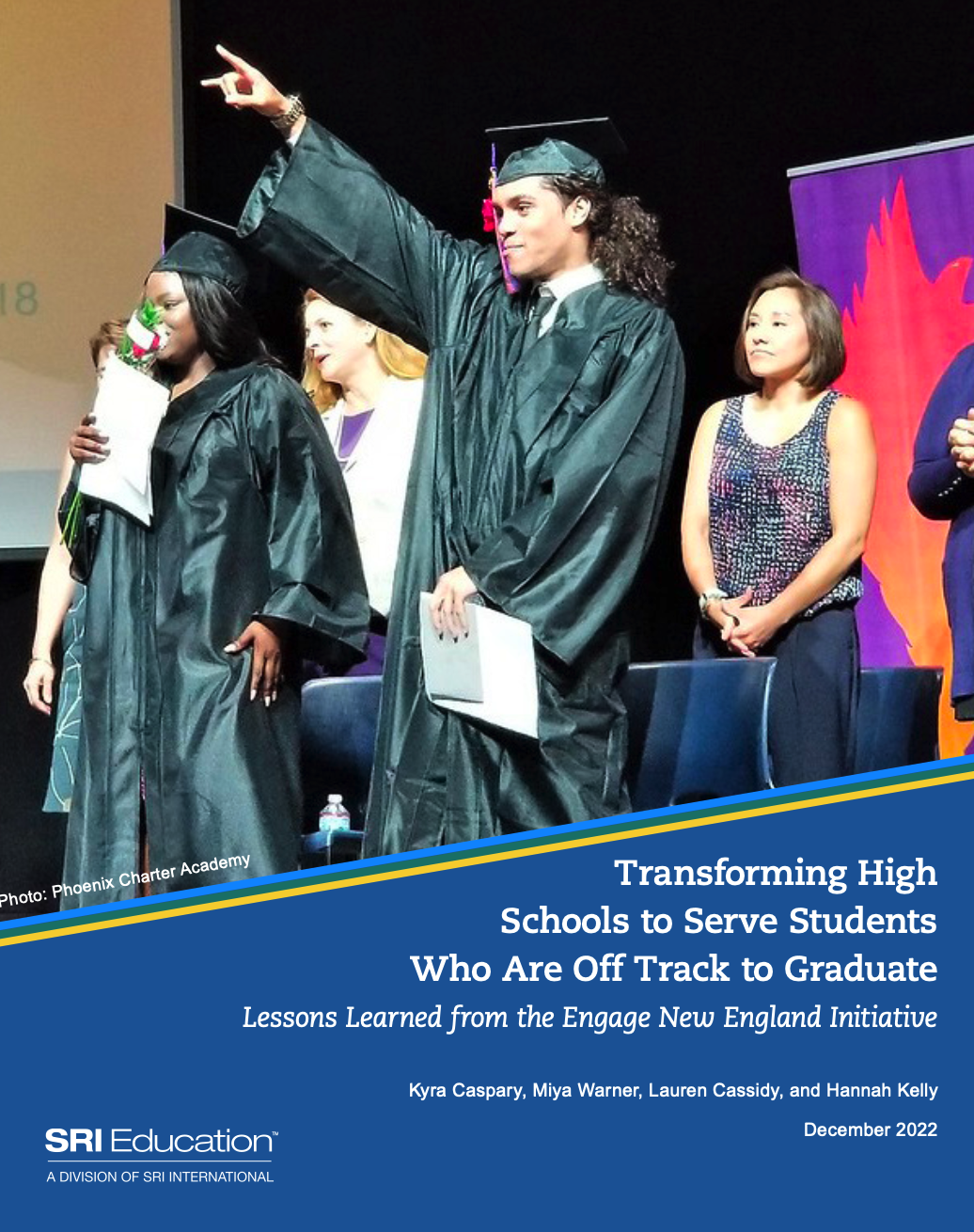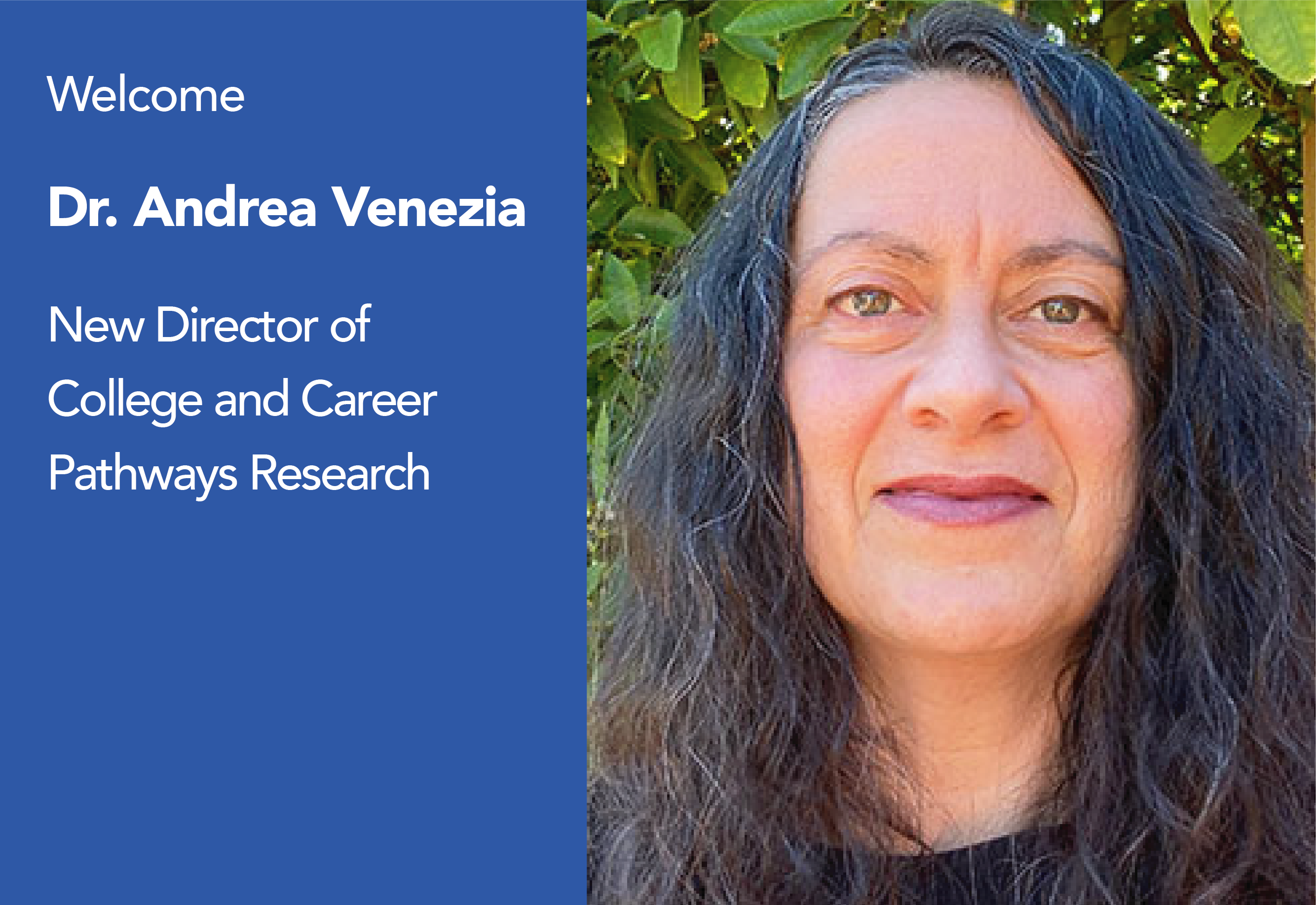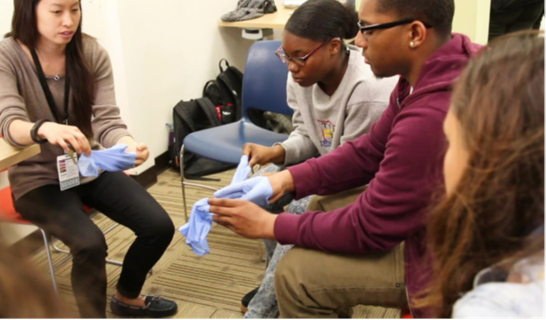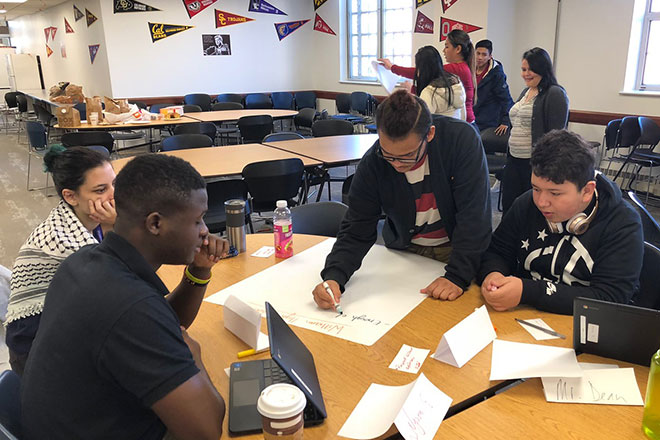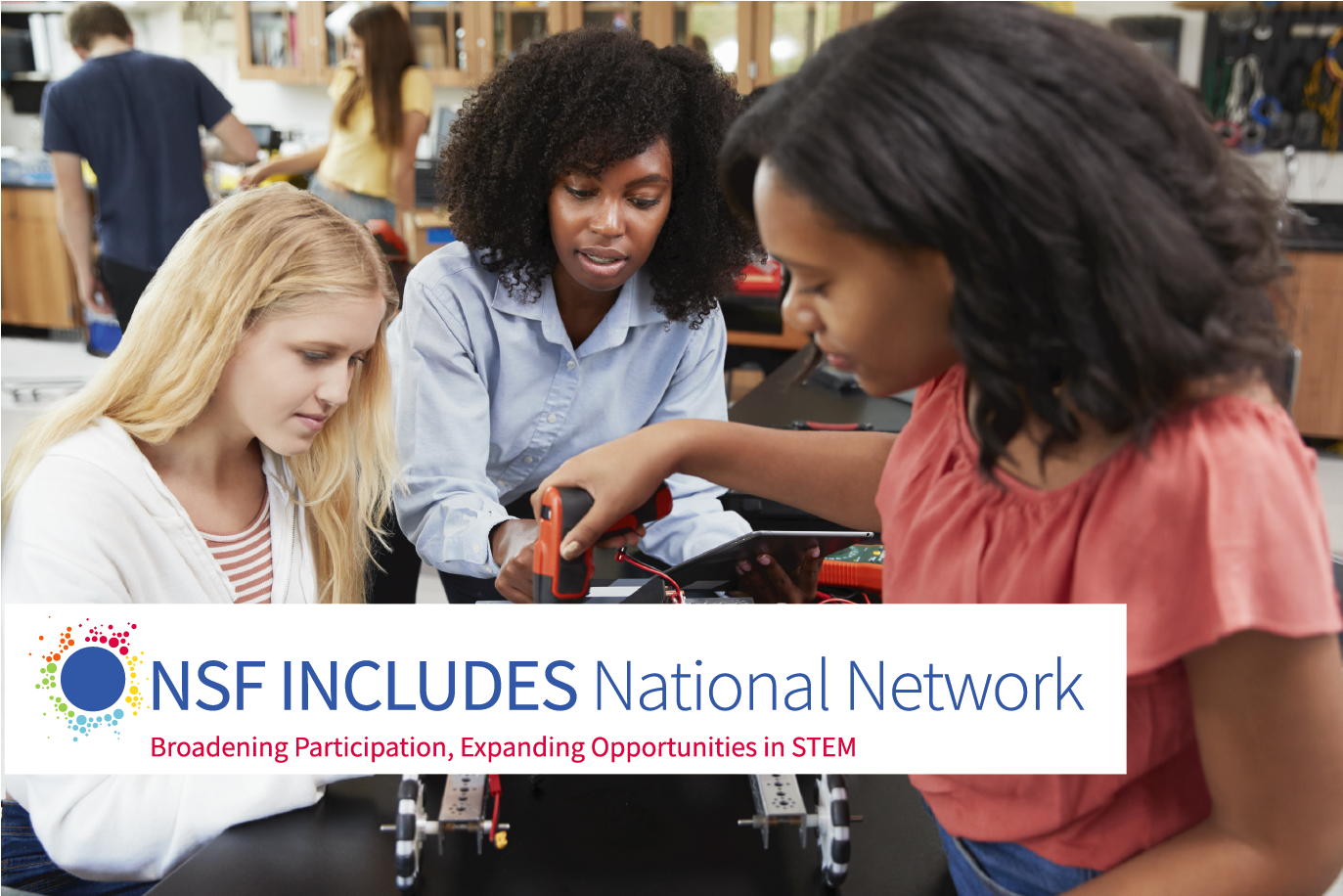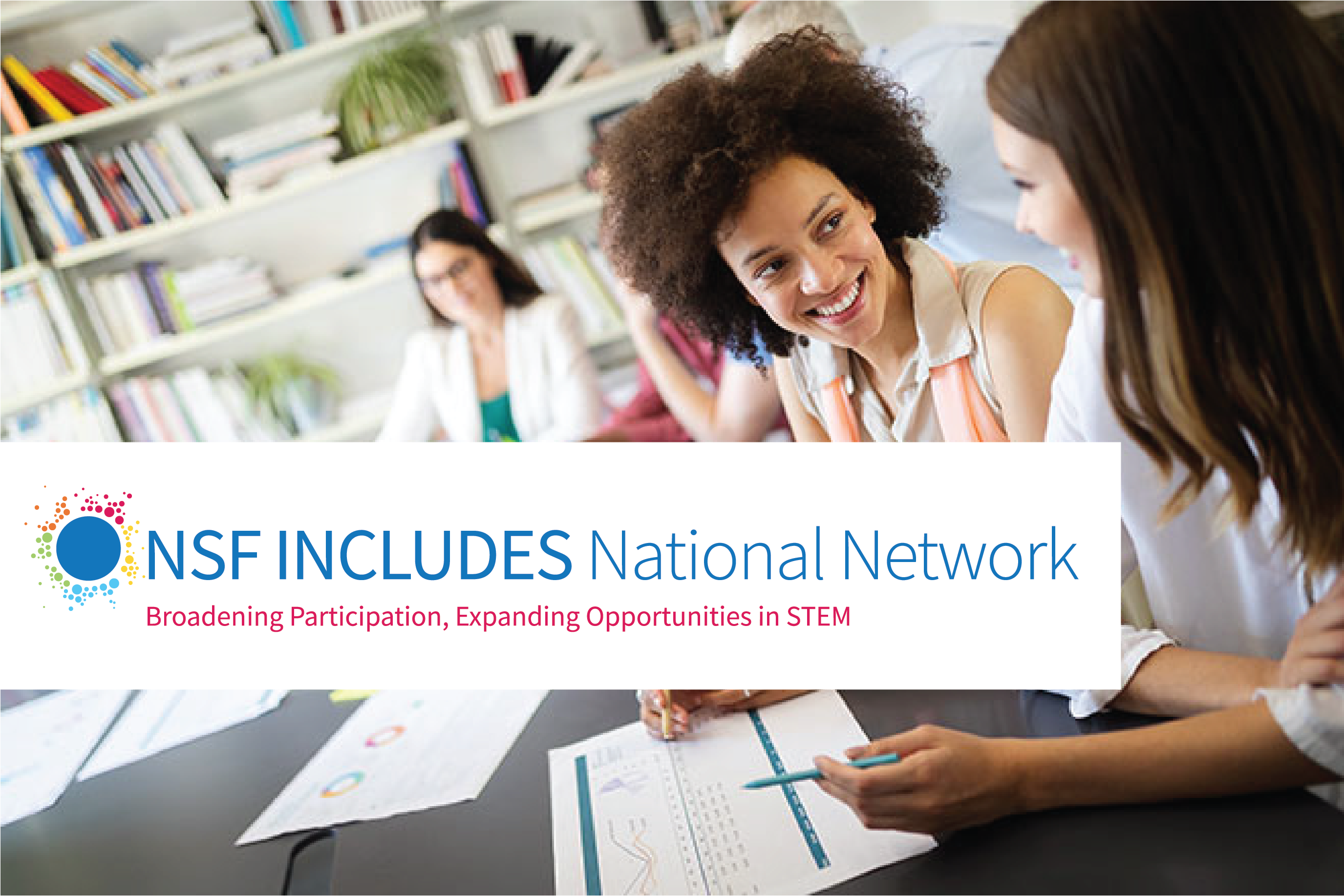The Barr Foundation’s Engage New England (ENE) initiative was an effort to catalyze high school innovation by developing exemplary schools that support the success of students who are off track to graduate. Grounded in the tenets of positive youth development, the ENE initiative provided grants and technical assistance to support new or redesigned schools in … Continue reading Transforming High Schools to Serve Students Who Are Off Track to Graduate
This brief describes the approaches Engage New England (ENE) schools used to support academic case conferencing and their implementation of key practices.
This brief describes common facilitators and challenges experienced by Engage New England (ENE) grantees as they worked to further their instructional systems. It also provides some promising practices that grantees used to support these efforts or to address challenges.
This brief presents the lessons learned and common themes across Engage New England (ENE) grantees, as well as implications for planning and implementation that may be useful for subsequent cohorts of ENE grantees as they prepare to launch their programs or schools.
Over the past 2 decades, the United States has seen enormous growth in the science, technology, engineering, and mathematics (STEM) fields. This growth has been particularly strong for high skill technician jobs in technology and computer science, which offer a promising path to the middle class for many Americans.
Alternative high schools were originally conceived of as a place where students who were not succeeding in a traditional setting could have their academic needs met. These schools have developed negative stigmas, with the reputation as being credit-recovery factories for students who are off-track to graduate.
College instructors see it all the time. Each semester brings bright students who easily grasp new ideas, but may struggle with assignments or studying for exams. These students can excel when explicitly taught skills to manage their own learning, research conducted by Dr. Omar Faison at Virginia State University has found. If students do not have these skills, online courses can be particularly challenging. With more college courses moving online, students need self-directed learning skills more than ever.
Dr. Andrea Venezia joined SRI Education in May as our new director of college and career pathways research, co-leading the program area with Dr. Miya Warner. Most recently, Andrea was a professor of public policy and administration at Sacramento State University and executive director of the Education Insights Center.
The Oakland Health Pathways Project involves education and industry partners in expanding education and long-term employment opportunities for youth of color in Oakland, California. Project partners used the Linked Learning approach to engage students in education and employment experiences related to the health care field.
Including student voice in school design is an important strategy for promoting and facilitating educational equity. Ensuring that all students’ backgrounds and perspectives are considered is especially critical during a time when many people in the United States continue to experience the injustice of racial and social inequities.
This research brief identifies promising strategies for embracing student voice in school design based on the experience of Engage New England (ENE) grantees. Successfully engaging students in decision-making and school design is not as simple as inviting them to attend staff meetings. As ENE grantees learned, meaningfully engaging students requires planning, scaffolding, and sustained attention … Continue reading Designing Schools with and for Students

